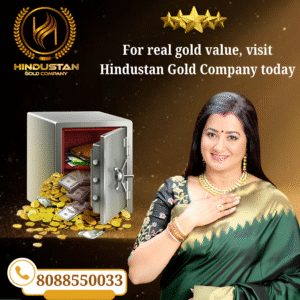Effective VAT management is one of the most complex—and crucial—aspects of running a restaurant in the UK. From correctly categorising menu items to reclaiming input tax on purchases and preparing for year end accounting services, VAT missteps can lead to costly errors, audits, or unnecessary tax burdens. In this restaurant accounting guide 2025, we focus exclusively on VAT challenges and how expert restaurant accountants and tailored VAT services can bring clarity and compliance.
1. Understanding VAT Rates for Restaurants
Restaurants must apply VAT at the standard rate of 20% on all food and drink consumed on the premises, including outdoor seating or shared areas in malls or airports. This also covers hot takeaway food and deliveries—even hot food to go is considered taxable.
Certain cold takeaway items may be zero-rated, such as cold sandwiches or salads consumed off-premises. However, if such items contain hot components or are marketed as hot, the entire sale may attract VAT. Misclassification here is a frequent issue.
2. VAT Classification: Hot vs Cold vs Mixed Supplies
VAT classification in restaurants often hinges on five HMRC tests for “hot” food:
-
Heated for consumption
-
Heated to order
-
Kept hot after cooking
-
Sold in heat‑retentive packaging
-
Marketed as hot/roasted
Examples:
-
Hot cheese panini sold in foil = standard-rated
-
Cold sushi salad = zero-rated, if eaten off‑premises
-
Meal deal of sandwich + crisps + drink: Requires VAT apportionment—e.g., sandwich zero‑rated, crisps and drink at 20%
Without accurate invoicing and strong bookkeeping services, restaurants often misapply VAT, leading to either under‑charging customers or misclaiming input tax.
3. Input VAT Recovery on Supplies & Business Costs
Restaurants incur VAT‑eligible expenses on food ingredients, fixtures, cleaning services, equipment, utilities, and professional services. Every invoice must be recorded correctly to reclaim your input VAT.
Example: Items like condiments or menu leaflets may be zero‑rated under specific guidance—but only if they meet strict HMRC criteria.
Some equipment like mobility aids for disabled patrons may also qualify as zero-rated or reduced-rated purchases.
Effective bookkeeping services aligned with VAT services ensure allowable expenses are claimed and disallowed ones aren’t.
4. Invoicing, E‑receipts & Menu Price Transparency
HMRC mandates that prices displayed outside a restaurant must include VAT, though menus inside needn’t show itemised VAT breakdowns. Many owners overlook this and default to pre-VAT prices. If customers are presented with VAT-exclusive prices and no notice, it may be acceptable—but transparency is key to trust.
Invoices or digital receipts must include full VAT details: your VAT number, rate applied, item breakdown, and total VAT charged.
5. Impact of Mixed Supplies & Meal Deals
Meal deals—when priced inclusively (e.g., coffee + cake)—create mixed-rate VAT transactions. You must allocate the total price proportionally based on the value of zero-rated vs standard-rated items.
Example:
If you offer tea (zero‑rated if cold) plus cake and crisps (standard-rated), the total price must be split. Assume tea £2, cake £1, crisps £1; you might allocate £2 zero-rated and £2 subject to 20% VAT, giving VAT liability of £0.40.
Achieving this requires disciplined record‑keeping and reliable classification—core elements of accounts for restaurant optimisation.
6. HMRC Audit Risks and Common Errors
Restaurant VAT audits often focus on:
-
Misclassifying zero vs standard-rated items
-
Incorrectly applying VAT to service charges or tips
-
Failing to reclaim input VAT on allowed items
Inconsistent pricing policies and undocumented apportionments increase reputational and financial risks during audits.
7. Seasonal Promotions, Discounts & Service Charges
Promotions: Discounted items still attract standard-rate VAT if they fall under taxable categories.
Service charges: Discretionary tips left by customers are zero-rated, but mandatory charges (e.g., “10% service”) are standard-rated and must carry VAT.
Properly recording these distinctions in bookkeeping services is pivotal.
8. Preparing VAT Returns: Workflow & Timing
VAT returns are filed quarterly, with strict submission deadlines usually one month and seven days after the period ends. If records are inconsistent, returns may be inaccurate—leading to penalties.
Best practice workflow:
-
Sync POS data into your accounting system daily
-
Reconcile sales, categorise VAT codes accurately
-
Record input VAT on relevant invoices
-
Review any mixed‑supply apportionments
-
Submit return using compatible, Making Tax Digital-compliant software
Services from restaurant accountants often automate much of this, reducing risk at year-end.
9. Year‑End Accounting Services & VAT Reconciliations
At the financial year‑end, restaurant businesses must:
-
Reconcile VAT ledgers with profit/loss
-
Review that all input VAT claims are valid and supported
-
Handle any partial exemptions due to non-VAT sales
Accurate year end accounting services ensure your VAT position is correct, assist in budget forecasting, and reduce liabilities. Many hospitality businesses only catch discrepancies at year‑end—causing retrospective adjustments that impact cash flow.
10. Rebate Eligibility & Hospitality Relief
Certain expenses—like printed menus or promotional leaflets—may qualify as zero-rated if they meet technical criteria (e.g., unlaminated, advertising material). A deep understanding of these nuances allows restaurants to reclaim more input VAT than standard practice.
Restaurant accountants can also review your service packages—like event catering or hospitality offers—for potential VAT savings, especially around category distinctions (catering vs sales).
11. Systems & Software for VAT Compliance
To retain control of VAT, many restaurants adopt dedicated digital tools. Integrating point-of-sale systems, online ordering, inventory, and accounting platforms helps manage VAT correctly.
Effective bookkeeping services often rely on cloud-based accounting software that:
-
Tags items with correct VAT rates
-
Splits meal deals
-
Handles service charge logic
-
Generates compliant invoice templates
If your current system lacks this, upgrading is essential for compliance and growth.
12. VAT Impact on Optimisation & Growth
VAT compliance is not just about avoiding fines—it’s also about accounts for restaurant optimisation and pricing strategy. Accurately understanding VAT liabilities across dishes helps you:
-
Price menus effectively
-
Identify high-cost, low-margin items
-
Reclaim input VAT on equipment or renovation costs
-
Manage cash flow proactively before new tax quarters
The restaurant accounting guide 2025 encourages proactive VAT planning—including forecasting VAT liabilities and structuring supplier invoices to maximise input claims.
13. Real‑World Example: Misclassified VAT Costs
A seaside café sold freshly baked croissants from a warmed display case—croissants typically zero-rated when cold, but warmed ones count as hot takeaway. The café incorrectly zero-rated them for months. When HMRC audited, the business faced backdated VAT payments plus penalties. After engaging restaurant accountants, the error was corrected mid-quarter, and a repayment plan was arranged, saving significant interest and fines.
14. When to Seek Help: Expert VAT Support Matters
If VAT rules sound intimidating, or you’ve had HMRC queries, involving restaurant accountants early can prevent costly missteps.
Expert VAT services can include:
-
Regular staff training on VAT treatment
-
Review of menu items and POS setup
-
Automation support for returns
-
Audit preparation and compliance reviews
Any restaurant aiming for sustainable growth in 2025 should reference a strategic restaurant accounting guide 2025—which covers today’s VAT nuances, best tech practices, and HMRC expectations.
15. How E2E Accounting Can Help You
At E2E Accounting, we specialise in VAT complexity for the UK restaurant sector. Our services include:
-
Robust bookkeeping services tailored to hospitality VAT rules
-
Dedicated VAT services, including classification, apportionments, and reclaim strategies
-
Year end accounting services to consolidate VAT at closing and maintain compliance
-
System integration advice for restaurant POS and accounting tools
-
Guidance on accounts for restaurant optimisation, helping you align pricing, costs, and VAT efficiency
As part of your financial team, we ensure that VAT is correctly applied so your focus remains on cooking and hospitality. For proactive VAT planning, risk reduction, and profit-maximisation, contact E2E today.


